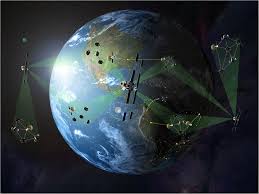Driverless/Connected Cars are starting to move beyond the hype (and not always in a good way). News, articles, and analysis posted here will focus on the technology/societal implications of this ecosystem.
Last Updated: 8/24/18

CONTENT COMING SOON!
Japan’s New Satellite to Help Keep Self-Driving Cars—and North Korea—In Line
The satellite will allow Japan to start operating its own version of the U.S. military-controlled GPS (The Wall Street Journal, October 9, 2017)
With its latest satellite launch, Japan is taking a leap in technology to keep its self-driving cars in their highway lanes, land delivery drones on matchbox-sized targets in the country, and potentially help destroy North Korean missile sites.
Tuesday’s launch, Japan’s fourth of a geo-positioning satellite, will allow the country to start operating its own version of the U.S. military-controlled Global Positioning System in April, a network that will cover Japan and the surrounding region.
Officials at Japan’s space center in the south of the country applauded as the successful deployment of the satellite was announced about 30 minutes after the launch.
The new system—working in coordination with the American system until it can stand alone in a few years—will provide location accuracy down to a few centimeters, compared with a few meters for GPS.
Japan says the service is aimed at providing better location data for its commercial users. Under its new system, geo-location satellites will hover directly above Japan, fixing the problem in the country’s dense urban areas of existing GPS signals occasionally being blocked by tall buildings.
As GPS has become deeply integrated in many nations’ economies, such as the tracking of delivery trucks, other countries and regions have been developing their own geo-location systems.
A new European system began at the end of last year. After the launch of its final satellite last year, India expects its own satellite-navigation system to become operational in 2018. China forecasts its own system will start in 2020. Japan’s system, the Quasi-Zenith Satellite System, or QZSS, will provide the most precise location data of all.
The Japanese system will work in conjunction with the GPS network but can potentially run independently when it reaches seven satellites around 2023.
One of the most significant benefits may be in the development of self-driving cars. (
Read More)
Analysis: The down-to-a-few-centimeters accuracy is key, particularly in a densely-populated area such as Japan, where everything--including road "attributes"--are much more compact. The lack of such accuracy will be a limiting factor in the U.S. for a while, though driverless-car makers are compensating for it (to some degree) by using other sensors to provide more precision/accuracy for key use cases, e.g. parking a car, etc.
________________________________